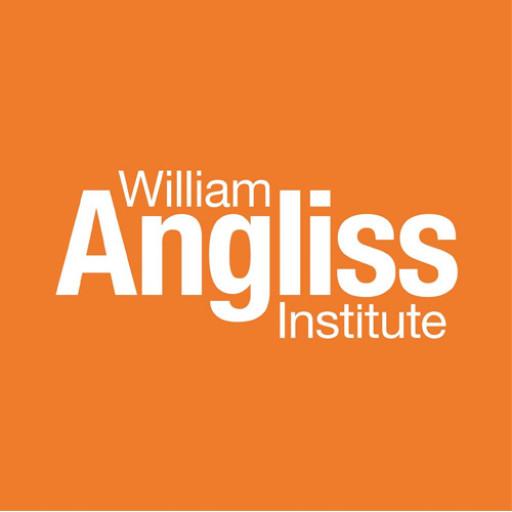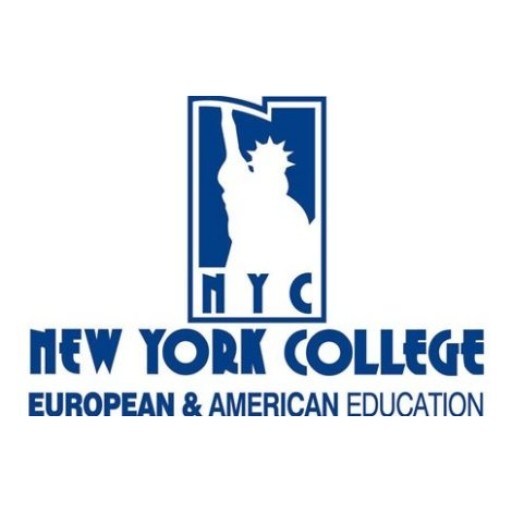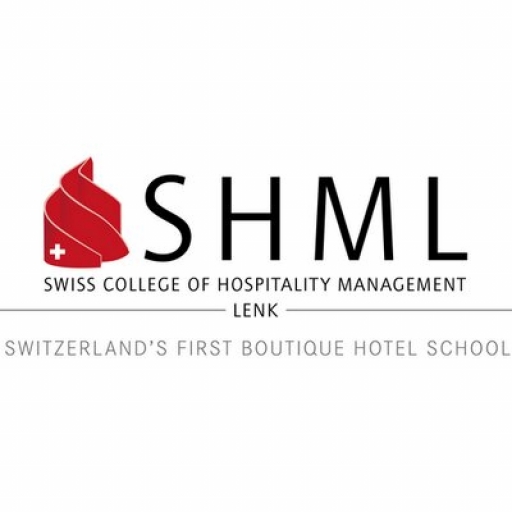Photos of university / #tallinnatehnikakorgkool
The Innovative Hospitality Management program at the University of Applied Sciences offers students a comprehensive and forward-thinking education in the dynamic field of hospitality industry. Designed to meet the evolving demands of global tourism and hospitality sectors, this program provides learners with a solid foundation in core management principles while emphasizing innovation, sustainability, and digital transformation. Throughout the course, students will explore a wide range of topics including hospitality operations, marketing strategies, financial management, service quality, and leadership skills. The curriculum integrates theoretical knowledge with practical applications through internships, industry projects, and collaboration with leading hospitality businesses. This approach ensures graduates are well-prepared to tackle real-world challenges and seize emerging opportunities within the hospitality sector. The program also highlights the importance of regional cultural influences and sustainable practices, aiming to cultivate responsible industry professionals who can contribute to the development of innovative solutions for current and future hospitality needs. Equipped with modern tools, critical thinking, and entrepreneurial mindset, students will be encouraged to develop innovative concepts for hotels, restaurants, event management, and other related services. The program benefits from the university’s strong links with industry partners, providing students with valuable networking opportunities, mentorship, and exposure to cutting-edge trends. Graduates will be positioned to pursue careers in hotel management, event planning, tourism development, consultancy, and entrepreneurial ventures in the hospitality industry. Overall, this program prepares students not only to adapt to industry changes but also to become leaders who drive innovation and excellence in global hospitality.
STUDY PLAN
The MSc Innovative Hospitality Management is a one-year full time master course. The first academic block takes place in Barcelona, Spain, followed by the second academic block in Maastricht, The Netherlands. The In-Company Research Project (internship) could take you anywhere worldwide (visa permitting).
Leadership Competencies (held in Barcelona and Maastricht): The people working in hospitality are the ones in charge of making it an interesting field for personal and professional growth. (Barcelona and Maastricht)
* Personal Development Program (4 ECTS): Students are guided in developing the basic competencies for professional life, with a special focus on the requirements of working as Hospitality Managers.
* Communication Skills (3 ECTS): Principle and practices of management, communication and consulting will be introduced and practiced. These skills will be applied in a short but realistic management project.
* Communication Skills Barcelona Block
* Communication Skills Maastricht Block
* Cross Cultural Management Skills (3 ECTS): Assesment and advice in how to release higher potential in individuals enabling sustainable success by making the most of alternative cultural perspectives.
* Cross Cultural Management Skills Barcelona Block
* Cros Cultural Management Skills Maastricht Block
Innovation in Hospitality (Barcelona Block): New trends in the hospitality field are changing the scenario of jobs in the future. The program prepares students to provide a more creative and efficient approach to the profession. Real life case studies complement the academic inputs.
* Redefining the Hospitality Experience (5 ECTS): It focuses on concept and idea generation frameswork for indentifying and creating hospitality business oportunities through the enhancement of the guest experience. Cool Hunting, Design Thinking processes and Imagineering and Co-creation are specific topics covered within the module. Selected tools, techniques and examples of good innovation management will be covered.
* Innovation Management in Hospitality (5 ECTS): This module reviews relevant innovation concepts in tourism and hospitality, with a specific focus on the main factors and drivers in innovation in relation to hospitality organizations.
* Entrepreneurship and Intrapreneurship (5 ECTS): This module focuses on the challenges of turning ideas and innovations into profitable and sustainable business, either by creating a new company or entrepreneuring inside an existing one.
Hospitality Management (Maastricht Block): Students become acquainted with a creative and systematic pursuit of organizational goals within the hospitality industry, by planning, organizing, leading and controlling the available resources in a concerted and sustainable way.
* International Strategic Management (5 ECTS): Starting from the mission and vision and given the objectives of a company, a strategic analysis of a real company in the hospitality industry will be submitted. After completing the strategic analysis students will make an implementation plan, including risk management. Competitive and internationalization strategies will be evaluated among others and a choice will be made for the company.
* International Marketing Management (5 ECTS): Keywords are: relationship management approach, customer value and growth strategies. A marketing plan for an existing company will be developed, in wich all important marketing decisions are featured, such as international service and brand management, international price, communication and distribution management.
* International Financial Management(5 ECTS): This module provides essential financial skills necessary in order to analyze different business scenarios. Financial competencies are directly related to top performance careers within the industry. The components towards succesfully applying revenue management will be introduced and discussed step by step. * Hospitality Research, held in association with Oxford School of Hospitality Management (20 ECTS): Research Skills in the hospitality field are a critical factor for anticipating future scenarios and for transferring academic knowlegde needed to face challenges in the industry.
* Research Skills: The aim of Research Skills is to reinforce your expertice in research. This academic block involves: problem solving; research design; information management and research; anaylsis and synthesis of data; writing research reports.
* Professional Placement: The universities collaborate in finding an international internship in a hotel, tourist organization, consultancy or tourism related company (visa regulations permitting), of a minimum duration of 18 weeks. In many cases, students are offered positions within de company upon the graduation.
* In-Company Project: A research assignment will be carried out during the professional placement. A clearly-defined area will be determined, to wich this practice-oriented research project will make a significant contribution. The research projects are a win-win situation both for hospitality companies and for students. Projects may range from feasibility studies, clarifying a policy problem, indentifying bottlenecks, making recommendations for improving an existing situation or evaluating processes.
Program requirements for the Bachelor of Science in Innovative Hospitality Management at the University of Applied Sciences include a combination of academic prerequisites, language proficiency, and application documents. Applicants are generally required to have completed secondary education equivalent to a high school diploma or higher secondary certificate, demonstrating a strong academic record. Proficiency in English is necessary, often evidenced by standardized tests such as TOEFL or IELTS, with minimum scores specified by the university to ensure students can participate effectively in coursework conducted in English. Additionally, candidates may need to submit motivation letters, references, and a curriculum vitae outlining their interest and relevant experience in hospitality or management fields.
The program may also consider professional experience or internships in the hospitality sector as a plus during admissions. Admission procedures typically include an application form, relevant academic transcripts, proof of language proficiency, and sometimes an interview or entrance assessment to evaluate the candidate’s motivation and aptitude. Certain prerequisites such as basic knowledge of business management, marketing, or hospitality operations can be beneficial, though not always mandatory.
Once enrolled, students are expected to meet ongoing academic requirements, including passing coursework, participating in practical projects, and completing internships or industry placements that are integral to the program. The curriculum aims to develop innovative approaches to hospitality management, requiring students to engage with emerging trends, sustainable practices, and digital technologies in the hospitality industry. Overall, the university seeks motivated applicants with a commitment to developing leadership skills and a global mindset, prepared to contribute to the dynamic field of hospitality management.
The financing of the Innovative Hospitality Management programme at the University of Applied Sciences is structured to ensure accessibility and sustainability for prospective students. Tuition fees are established by the university and are subject to annual review, reflecting the costs associated with delivering high-quality education, maintaining modern facilities, and providing comprehensive student support services. Typically, the program’s tuition fees are comparable to other similar programmes offered by the university, aiming to remain competitive within the region’s higher education landscape.
Students have multiple financial aid options to support their studies. The university offers scholarships based on merit, financial need, or a combination of both, which can significantly reduce the cost of tuition. These scholarships are awarded through an application process and are designed to recognize academic excellence, leadership qualities, or socioeconomic background. Additionally, students may qualify for government financial assistance programs, such as student grants, loans, or subsidies, which can be used to cover tuition fees or living expenses during their studies.
The university also provides flexible payment plans to accommodate students’ financial circumstances, allowing for instalment payments over the academic year. This approach helps reduce the immediate financial burden and enables students to plan their finances more effectively. Employers and industry partners sometimes collaborate with the university to offer sponsored study options, internships with stipends, or part-time work opportunities, which can contribute toward the students’ educational expenses.
Furthermore, international students have access to specific scholarships and funding schemes aimed at attracting talent from abroad, promoting diversity within the programme. The university’s financial aid office offers guidance and assistance throughout the application process, ensuring students are informed about all available options to finance their education.
In summary, the financing for the Innovative Hospitality Management programme involves a combination of university tuition fees, scholarships, government aid, flexible payment options, and external funding opportunities, all structured to support students financially and promote access to quality education in the field of hospitality management.
Innovative Hospitality Management at the University of Applied Sciences is a forward-thinking program designed to prepare students for leadership roles in the rapidly evolving hospitality industry. The curriculum emphasizes the development of practical skills combined with innovative approaches to management, customer service, and sustainable practices. Students gain comprehensive knowledge in areas such as hotel operations, event management, tourism, digital marketing, and entrepreneurship. The program integrates theoretical foundations with hands-on experiences through internships, project work, and collaboration with industry partners.
The program is structured to foster creativity, strategic thinking, and technological proficiency, ensuring graduates are well-equipped to meet current and future challenges in hospitality. Emphasis is placed on innovation and adapting to market trends, including the integration of digital technologies, eco-friendly practices, and personalized guest experiences. Students also learn about the global hospitality landscape, cross-cultural communication, and sustainable development goals.
Faculty members are experienced professionals and researchers dedicated to providing personalized mentorship and supporting student projects. The university employs modern teaching methods, including interactive workshops, case studies, simulations, and virtual learning tools. The program also offers opportunities for international exchanges and networking events, enhancing students’ global outlook and competitive edge.
Graduates of the Innovative Hospitality Management program are prepared for careers in hotel management, event planning, tourism development, and other related fields. They are equipped with entrepreneurial skills to start their own ventures or innovate within established organizations. The program aims to develop versatile professionals who can adapt to technological changes and contribute to creating exceptional guest experiences while promoting sustainable practices in the hospitality industry.







